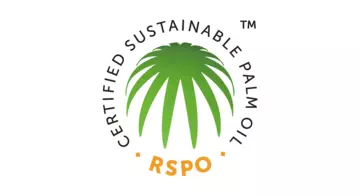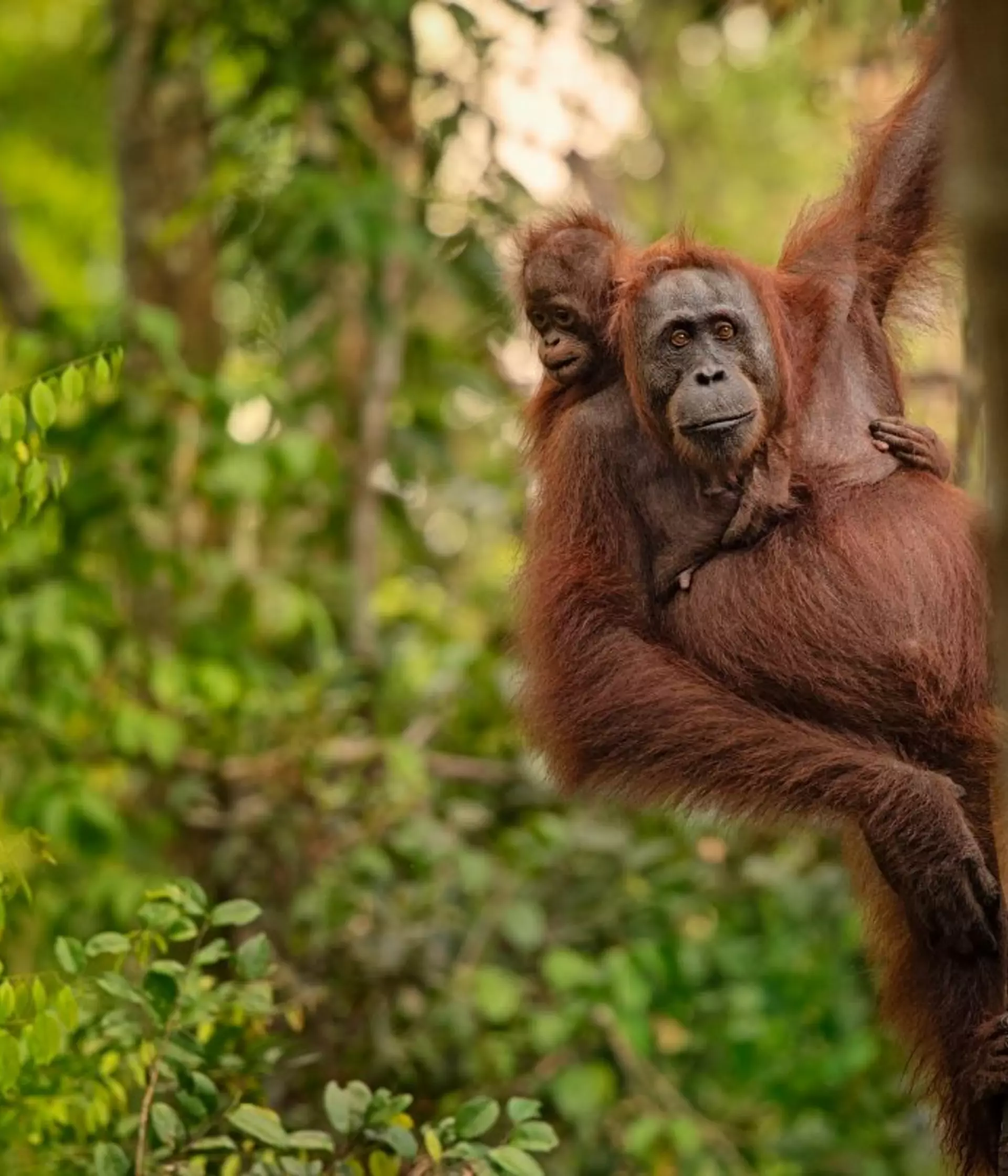
Addressing the environmental impact of palm oil
More than 70 million tonnes of palm oil is produced globally every year and in recent decades, oil palm plantations have expanded dramatically in response to ever-increasing global demand for palm oil. While it's an incredibly efficient and useful crop, unsustainable production has caused damage to wildlife and valuable ecosystems.
What is palm oil, why is it in so many products, and can it ever be sustainable? Get the facts about palm oil from our experts.
11 facts about palm oil
1. Palm oil comes from fruit trees
Palm oil is a type of vegetable oil that’s extracted from the fruit of oil palm trees. Most of the world’s palm oil comes from the African oil palm (Elaeis guineensis), a native of west Africa that is now grown in tropical regions across Africa, the Americas and Asia. Another species, the American oil palm (Elaeis oleifera), is found in Central and South America, but is rarely cultivated. Palm oil is the world’s most widely used vegetable oil.
2. It’s an incredibly efficient crop
Palm oil is the most efficient vegetable oil crop to produce in terms of yield per hectare. One hectare of sunflowers produces around 0.7 tonnes of oil, while the same area of oil palm trees can produce 3.5 tonnes. Palm oil provides around 35% of the world’s vegetable oil supplies, while only taking up 10% of the overall land used to grow oil crops.
3. Palm oil products are everywhere
Palm oil is edible, contains natural preservatives and has no taste or smell once refined, making it a versatile ingredient in food, beauty products and household goods. Products containing palm oil range from chocolate, margarine and pre-packaged baked items to shampoo, toothpaste, makeup and detergents. Palm oil is thought to be included in up to 50% of packaged consumer goods. It is also used as a biofuel, and in animal feeds.
4. There are two types of palm oil
African oil palm trees produce heavy bunches of fruit nearly year-round. Regular palm oil is harvested by pressing the reddish pulp of the fruit. Naturally red in colour before being processed, it is widely used in food. Palm kernel oil is a yellow oil that’s produced by crushing the inner kernel of the fruit. It’s generally used in non-food items, such as cosmetics and cleaning products.
5. Palm oil deforestation is a huge problem
Since the 1960s, palm oil has gone from a subsistence crop in Africa to a global commodity that’s grown in more than 40 countries, chiefly in Southeast Asia. Along the way, vast amounts of tropical forest have been destroyed, and peatlands drained, to clear land for oil palm plantations. Palm oil production is thought to have been responsible for about 8% of global deforestation between 1990 and 2008 – and it continues to expand.
Fighting for sustainable palm oil
SPOTT platform
A free online platform that tracks transparency and supports sustainability across the palm oil, timber and pulp, and natural rubber supply chains.
6. Palm oil doesn’t just threaten orangutans
The numerous species affected by palm oil deforestation in Southeast Asia include orangutans, Sumatran rhinos, forest elephants, sun bears, helmeted hornbills, pangolins and tigers. And as palm oil production expands in African countries such as Cameroon, endangered animals such as gorillas and chimpanzees could come under even greater pressure. At least 193 threatened species are directly impacted by palm oil production worldwide.
7. Palm oil production is accelerating climate change
Palm oil deforestation is bad news for global warming as well as for biodiversity. Destroying forests and peatlands stops them absorbing and locking away carbon, and releases huge quantities of carbon dioxide back into the atmosphere. Yet as research by ZSL has shown, palm oil producers have been slow to assess, let alone mitigate, their climate risks.
Wildlife and the climate crisis
Climate change
The climate crisis is pushing our planet to its limit, but together we have the power to make a difference.
8. It’s also contributing to forest fires
Some of the worst climate impacts of palm oil production occur when forests and peatlands are cleared – often illegally – by burning. In 2013 and 2015, some of the worst smogs on record spread across parts of Southeast Asia. Originating from forest fires on the islands of Sumatra and Borneo, the smogs were widely blamed on slash-and-burn land clearances by paper and palm oil companies.
9. Palm oil provides livelihoods
Despite the negative impacts of palm oil production, simply boycotting palm oil products isn’t the most practical solution. Switching to any of the current palm oil alternatives would use up more land, while palm oil production supports over three million smallholders and small-scale farmers worldwide, lifting many out of poverty. But we need a more sustainable palm oil industry that respects wildlife, people and habitats.
10. Sustainable palm oil is a real option
If palm oil is produced more responsibly – by ending deforestation, protecting wildlife and habitats, and treating local people fairly – it can become a sustainable crop. ZSL is part of the Roundtable on Sustainable Palm Oil (RSPO), a global non-profit organisation that developed the first internationally recognised sustainable palm oil certification scheme. But we still have a long way to go before all products containing palm oil are sustainably produced.
Creating sustainable palm oil
SPOTT platform
We're influencing buyers and producers of palm oil, rubber and timber to act more sustainably.
Sustainable palm in Cameroon
20 million hectares of new oil palm plantations could be established in west and central Africa over the next decade. We're working with governments and industry in Africa to ensure biodiversity conservation in the face of an expanding industry.
Palm oil and climate change
93% of palm oil producers have not assessed climate risk.
11. We can all do our bit to make palm oil sustainable
Creating a more sustainable palm oil industry requires action on a local, national and global scale, and ZSL is engaging with governments, the private sector and communities to inspire change. Our SPOTT platform scores palm oil producers and traders on their environmental transparency – allowing buyers and investors to make informed decisions about who to do business with.

But it’s not just big business that has the power to take a stand against palm oil deforestation; we can all do our bit.
What can you do to help create a sustainable palm oil industry?
- Don’t just avoid the problem by boycotting palm oil altogether; instead be part of the solution by supporting Roundtable on Sustainable Palm Oil (RSPO) certified sustainable palm oil (CSPO) as a minimum.
- Look out for products bearing the RSPO Trademark, which show that they contain a minimum 95% of CSPO.
- Read more about the issues in the palm oil supply chain, and what producers can do better, through our reports and guidance.
- Expand your knowledge of sustainable palm oil practices through our training materials.
- Check the sustainability certification of palm oil in your favourite products using mobile apps such as WAZA’s PalmOil Scan App and RSPO ScanApp (currently only available in France).
- Take a look at other scorecards assessing buyers, retailers and financiers in the palm oil supply chain, such as Global Canopy’s Forest 500, WWF’s Palm Oil Buyers Scorecard, and the Forests and Finance database.
Need advice on sourcing sustainable palm oil?
Together with the British and Irish Association of Zoos and Aquariums (BIAZA), we promote sustainable behaviour change among visitors and best practices in zoological management. We believe that zoos provide the perfect venue to raise awareness and take action on the issue of sustainable palm oil, because many of the tropical species in our collections are directly affected in the wild by palm oil industry operations.
Although the sector has made good progress, several barriers prevent zoos from sourcing 100% certified palm oil, including lack of traceability, limited RSPO membership, and inadequate uptake of RSPO certification in animal feed supply chains.
BIAZA supports actions to increase the supply of sustainable palm oil being brought into the UK and encourages its members to ensure unsustainable palm oil is removed from their supply chains by sourcing products containing only certified sustainable palm oil. Visit the BIAZA website for a useful list of resources.
